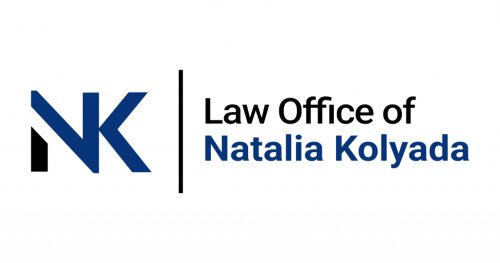Best New Business Formation Lawyers in Georgia
Share your needs with us, get contacted by law firms.
Free. Takes 2 min.
Or refine your search by selecting a city:
List of the best lawyers in Georgia, United States
About New Business Formation Law in Georgia, United States
Starting a new business in Georgia involves following specific state and local laws to ensure your company is legally established and compliant with regulations from the beginning. Business formation law covers the legal steps required to create a business entity, select its structure, file necessary documents, secure licenses, and meet ongoing compliance obligations. Georgia offers several business entity options, such as corporations, limited liability companies (LLCs), partnerships, and sole proprietorships, each with their own legal implications. Understanding these laws is crucial for business success and sustainability.
Why You May Need a Lawyer
While Georgia makes it possible for anyone to file the paperwork required to start a business, there are many situations in which a lawyer's guidance is essential. Legal professionals can help you:
- Choose the most appropriate business structure for liability and tax purposes
- Draft or review formation documents, operating agreements, and bylaws
- Navigate state and local licensing requirements
- Understand and comply with employer obligations, such as labor law and tax registration
- Resolve disputes among founders or partners
- Protect intellectual property, such as trademarks and trade secrets
- Review contracts, leases, and agreements
- Assist with regulatory compliance specific to your industry
- Plan for succession, ownership transfers, or dissolutions
Engaging a lawyer early can prevent costly mistakes and protect your interests as your business grows.
Local Laws Overview
Georgia has specific rules that impact new business formation. Key aspects include:
- Entity Selection: Businesses can be formed as LLCs, corporations, partnerships, or sole proprietorships. Each has distinct filing requirements, tax treatment, and liability implications.
- Business Name Registration: All businesses must register a unique name with the Georgia Secretary of State. Names must not infringe on existing trademarks or reserved names.
- Articles of Organization or Incorporation: LLCs and corporations must file these formation documents with the state and pay the applicable fees.
- Registered Agent: All entities must designate a Georgia-based registered agent to receive legal documents.
- Business Licenses: Depending on your location and industry, you may need state, county, or city business licenses.
- Employer Identification Number (EIN): Most entities will need an EIN from the IRS for tax purposes.
- Annual Registrations: Most business entities must file an annual registration and pay a fee to the Secretary of State to remain in good standing.
- Operating Agreements and Bylaws: While internal operating agreements (for LLCs) and bylaws (for corporations) are not always required, they are highly recommended.
- Compliance with Local Zoning: Businesses must comply with county or city zoning regulations before commencing operations.
Frequently Asked Questions
What types of business entities can I form in Georgia?
You can form an LLC, corporation, partnership, or operate as a sole proprietor. Each has its own benefits, drawbacks, and legal requirements.
How do I register my business name in Georgia?
Business names are registered with the Georgia Secretary of State when filing the formation documents. The name must be unique and meet state requirements.
Do I need a business license to operate in Georgia?
Most businesses require one or more licenses or permits from the state and/or local governments. License requirements vary by business type and location.
How much does it cost to form an LLC or corporation in Georgia?
As of 2024, the filing fee for an LLC or corporation is typically 100 dollars, plus annual registration fees. Costs may vary for expedited processing or additional services.
What is a registered agent, and do I need one?
A registered agent is a person or business authorized to receive legal and official documents on behalf of your business. Georgia law requires every LLC and corporation to have a registered agent with a physical address in the state.
What legal documents are required to form a business in Georgia?
At a minimum, you will file Articles of Organization (for LLCs) or Articles of Incorporation (for corporations) with the Secretary of State. Additional documents like operating agreements, bylaws, and partnership agreements are strongly recommended.
How do I get an EIN for my Georgia business?
You can obtain an Employer Identification Number (EIN) for free from the IRS, which is required for most businesses for tax administration, hiring employees, and opening bank accounts.
Does Georgia require annual reports or renewals for businesses?
Most registered entities must file an annual registration with the Georgia Secretary of State and pay the annual fee to keep the business in good standing.
Do I need to register with the Georgia Department of Revenue?
If your business will have employees, collect sales tax, or have certain other tax obligations, you must register with the Georgia Department of Revenue.
What local regulations should I be aware of when forming a business in Georgia?
Besides state requirements, your county or city may have local zoning, occupancy, and licensing laws that you need to follow before starting your business.
Additional Resources
Several resources are available to help with new business formation in Georgia:
- Georgia Secretary of State - Corporations Division (business filings and name registration)
- Georgia Department of Revenue (tax registration and requirements)
- Georgia Department of Economic Development (business incentives and resources)
- Small Business Development Centers (free consulting and training for entrepreneurs)
- Local county and city government offices (business licenses and permits)
- SCORE Georgia (mentorship and workshops)
- Local bar associations (referrals to experienced business attorneys)
Next Steps
If you are considering starting a business in Georgia or have questions about the process, consider the following steps:
- Research the different business entity types to choose the right structure for your needs
- Prepare a business plan and review potential legal obstacles
- Consult with a qualified business attorney to address entity selection, compliance, and contracts
- File formation documents with the Georgia Secretary of State
- Register with the appropriate tax authorities and obtain necessary licenses
- Draft important internal documents, such as operating agreements or bylaws
- Ensure compliance with all state, county, and city regulations
Taking these steps, with the assistance of a legal professional when needed, will provide a solid foundation for your new business and help set you up for long-term success.
Lawzana helps you find the best lawyers and law firms in Georgia through a curated and pre-screened list of qualified legal professionals. Our platform offers rankings and detailed profiles of attorneys and law firms, allowing you to compare based on practice areas, including New Business Formation, experience, and client feedback.
Each profile includes a description of the firm's areas of practice, client reviews, team members and partners, year of establishment, spoken languages, office locations, contact information, social media presence, and any published articles or resources. Most firms on our platform speak English and are experienced in both local and international legal matters.
Get a quote from top-rated law firms in Georgia, United States — quickly, securely, and without unnecessary hassle.
Disclaimer:
The information provided on this page is for general informational purposes only and does not constitute legal advice. While we strive to ensure the accuracy and relevance of the content, legal information may change over time, and interpretations of the law can vary. You should always consult with a qualified legal professional for advice specific to your situation.
We disclaim all liability for actions taken or not taken based on the content of this page. If you believe any information is incorrect or outdated, please contact us, and we will review and update it where appropriate.
Browse new business formation law firms by city in Georgia
Refine your search by selecting a city.












